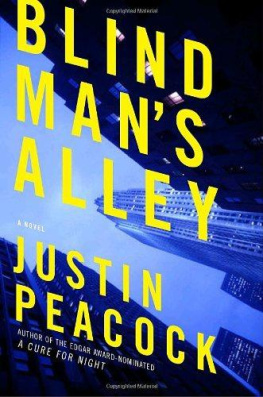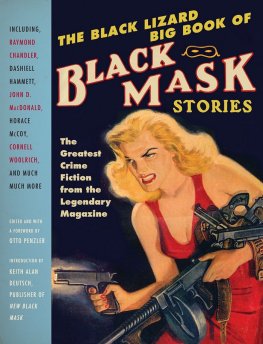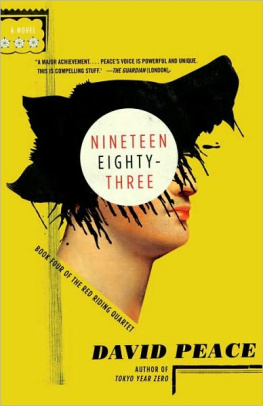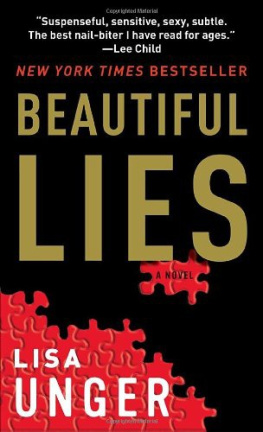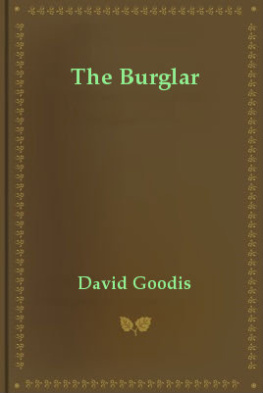
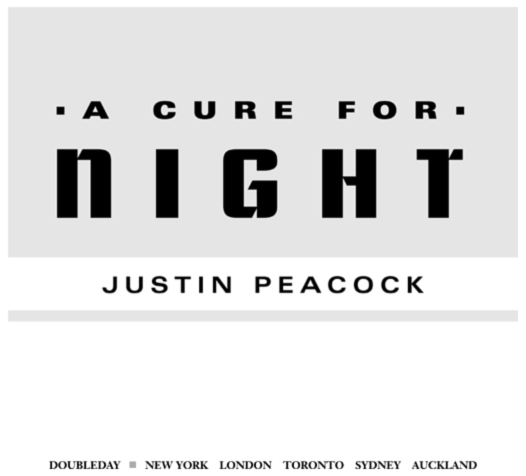
A CURE FOR
NIGHT
CONTENTS
To Melissa
A CURE FOR
NIGHT
PROLOGUE
T HE DAY my life fell apart began like any other. Of course, it's almost impossible to pinpoint the exact instant a life changesa million tiny events all conspire to bring us to every moment. But there can still be that day when things reach their boiling point and spill out into catastrophe.
I was a little late getting into work that morning. The truth was, I was often late those days; it wasn't particularly uncommon for it to be after ten by the time I came strolling in. I made up for it on the back end, often working deep into the night.
I was a midlevel associate at Walker Bentley Ferguson & Dunlop, one of New York's most prestigious law firms, and long hours came with the territory. In exchange for most of your waking hours the firm offered money, and lots of it. Still, it was easy for the associates to feel relatively poor in comparison to the corporate chieftains who made up our client base, or the partners who actually took home the firm's millions in profits.
It wasn't the sort of life I'd been born into, nor was it anything I'd ever particularly aspired toward, but it was where I'd ended up, and I'd gotten used to it. I hadn't been looking to blow it up, at least not on any conscious level. I hadn't gone looking for Beth, either; she'd simply shown up, a new paralegal at the firm assigned to one of my cases, a sprawling accounting fraud prosecution of a high-profile company and its senior executives.
I was spending almost all of my time on that case, plowing through the numerous tedious tasks that accompany a massive federal investigation: we were in the midst of turning over millions of pages of our client's documents to the government, every one of which first had to be reviewed. We were also conducting dozens of interviews with the company's employees, and drafting a sprawling white paper in an attempt to persuade the U.S. Attorney's office to drop the prosecution. It was the kind of case that racked up the billable hours, making the firm a lot of money, and making the lawyers who actually had to slog through it all thoroughly miserable.
I spent the dregs of the morning and into the early afternoon writing up my notes of a recent witness interview into a memo to files. I was still working on it while picking at the remains of a sandwich from the firm's cafeteria when Beth walked into my office and sat down.
I didn't like it when she did this. It made me nervous. Unfortunately, I'd made the mistake of letting her know, so she'd started popping in with some frequency, more to enjoy my discomfort than for anything else.
"Why you want people to gossip about us is beyond me," I whispered. Beth did not look playful, however; her mouth was drawn tight, her skin waxy and sallow.
"You got any candy in here?" Beth replied.
"Seriously," I said in a normal tone of voice.
"It's all your whispering that'll start gossip," Beth said, now speaking quietly herself. "There's nothing weird about my being in your office. People will just think you're telling me what to do."
"As if," I said.
"I really really need some sugar," Beth said.
"You know where the vending machines are."
"You don't understand," Beth said.
Looking at her, I did understand, but I didn't want to say the words out loud, not here in my office. Beth was craving sugar only to blunt her deeper need. "It's not that I don't understand so much as it is that I can't help you."
"I can take care of myself," Beth said. "How about you?"
"What about me?"
"You making it through your little day here?"
"My little day is going just fine, thanks."
Beth's voice again dropped to a whisper. "You coming over Friday?" she asked. I nodded.
"It's your turn to bring the supplies," she said in her normal voice.
"Why don't we just start wearing signs around our necks?" I said.
"Didn't you ever read The Purloined Letter or whatever it's called?" Beth asked. "Nobody ever sees the things that are hiding in plain sight."
Paul Frith, my closest friend at the firm and a colleague on the white-collar case, appeared in my doorway, hesitating when he saw Beth.
"Hey, Paul," Beth said, following the greeting with a pronounced sniffle. I saw how strung out she was because I knew what to be looking for, but nevertheless I had to think it was becoming obvious to anyone who cared to look.
Paul knew toothe only person besides me who did. He nodded at Beth in response to her greeting, glancing at her briefly, then looking away.
"You boys probably have important business to discuss," Beth said, standing, her clothes baggy on her thin frame. "I'll be down in the library if you need me."
I watched her go, idly remembering what it'd been like a few months ago, when she and I had first started up. It'd seemed like a bad idea at the start, but I'd had no idea how quickly it would get as bad as this. Paul closed my door, then sat down in the chair that Beth had just vacated.
"She's not looking so great," he said.
"I know."
"What are you doing about it?"
"Is there something I can do about it?"
"How long before that's what you look like?"
"I'm fine, Paul," I said, not asking myself whether I believed it. "Really."
"Isn't it time you just shut it down?"
"You don't have to worry about it," I said. "I mean, thanks, but you don't, okay?"
"Whatever you say, pal," Paul said, but he looked defeated. I tried and failed to think of something to say that would make him feel better, move us past this.
"So what's going on?" I said.
"Mary wants me to get everybody together for a team meeting at four today to talk about the status of the white paper," Paul said. "Since you and I are doing the heavy lifting on it, thought I'd check with you before I made it official."
"That's fine," I said. "That gives me a couple of hours to actually, you know, make some progress on it."
Paul stood, still looking deeply unhappy. I could tell there was more that he wanted to say. "See you then," I added, trying to cut him off.
Paul just looked at me for a moment, then nodded. "I'll see you, Joel."
I spent the next couple of hours glued to my desk, typing away at the white paper, which was already more than fifty pages long. Paul was writing the facts; I was writing the law. Essentially my task was to demonstrate that case law established that the actions taken by our client were not actually illegal. It was an uphill battle, but people didn't hire us to do the easy stuff.
IT WAS Paul who'd told me, appearing in my office doorway shortly before our scheduled meeting. I was so focused on my work I didn't immediately notice the ashen look on his face. "I take it you haven't heard?" Paul asked flatly.
"Heard what?"
"They found Beth in the ladies' room down in the library about an hour ago."
"What do you mean?" I asked, realizing as I said it that I already knew, my understanding racing ahead of my information.
"She was getting high," Paul said, a little anger entering his voice. "Who knows how long she'd been passed out in there before somebody found her?"
"They took her to the hospital?" I said.
Paul was unable to meet my eyes. "Apparently she vomited after losing consciousness. The old rock-star routine. I don't know the details, and don't really want to, but she was dead on the scene."
Next page

